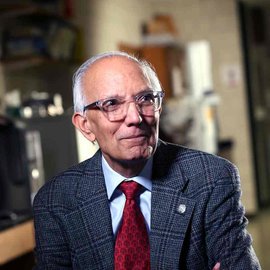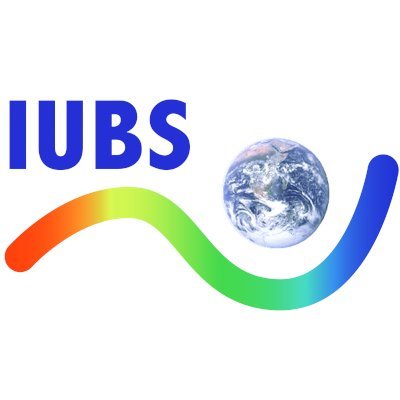

About
The International Union of Biological Sciences (IUBS) was established in 1919 as a non- governmental and non-profit organization comprising of National Academies and international scientific Associations and Societies. Since then IUBS is functioning as a global platform of scientists from all disciplines and nationalities for cooperation, interaction and collaboration to promote research, training, and education in biological sciences.
To commemorate completion of 100 years of promoting excellence in biological sciences, IUBS has launched a Webinar Series bringing the best of all disciplines to discuss evolution, taxonomy, ecology, biodiversity, and other topics that represent unified biology and the topics of prime importance to address contemporary problems such as climate change, endangered species, food & nutrition, health etc.
Join the conversation with this year’s World Food Prize winner Prof. Rattan Lal, moderated by the ISC Communications Director Alison Meston.
Date: 2 October 2020
Time: 1:00 PM GMT (6:30 PM IST)
For more details, visit the IUBS website.
Lecture
Almost one ‑third of the global ice free land area is prone to degradation by loss of soil biodiversity, depletion of soil organic carbon stock, acceleration of soil erosion by water and wind, increase in risks of secondary salinization, nutrient imbalance and disruption in elemental cycling by soil misuse and land mismanagement, expanding area under surface sealing by ad-hoc and expanding urbanization, and pollution by using soil as a global garbage dump for industrial effluents. The problem of soil degradation is being exacerbated by the current and projected anthropogenic climate change.
The severe problem of soil degradation is caused by the disconnect between nature and human. Mahatma Gandhi, whose 150 th birth anniversary is being celebrated in 2019- 2020, said “ To Forget How to Dig the Earth and to Tend the Soil is to Forget Ourselves”. Humanity is forgetting that soil is the source of all essential ecosystem services on which depends its survival.
Healthy soil, being a large reservoir of biodiversity, is a living entity. Yes, “All life depends on soil: there is no life without soil, and no soil without life, they have evolved together” said Charles Kellogg of USDA. Furthermore, “health of soil, plants, animals, people”( Sir Albert Howard), and environment is one and indivisible. Once soil health is degraded that of everything else is degraded with it. John Muir, a U.S. Philosopher said “ In nature when you try to pick one thing, you find it hitched to everything else”. Indeed, “everything is connected to everything else” (Barry Commoner,1972).
Therefore, the long-term solution to addressing global issues (e.g., climate change, hunger and malnourishment, water scarcity and eutrophication, air pollution, and dwindling of biodiversity) lies in restoring soil health and functionality and not taking soil for granted by reconnecting humanity to soil. Being a living entity, soil has rights to be protected, restored, thrive and managed judiciously. World peace and tranquillity are being jeopardized by the global problem of soil degradation. People are mirror image of the soil they live on. When soil is degraded and not tended, people are helpless and desperate.
To survive, the modern civilization must never ever “Forget How to Tend the Soil”.
Registration
Click here to register
Speaker
Prof Rattan Lal is a Distinguished University Professor and Director of the Carbon Management and Sequestration Centre at The Ohio State University. He is an Adjunct Professor at the University Iceland, and holds a Chair of Soil Science and Goodwill Ambassador position with Inter-American Institute of Cooperation in Agriculture, San Jose, Costa Rica. He was President of the Soil Science Society of America (2006−2008), and the International Union of Soil Sciences (2017−2018). He researches soil carbon sequestration for food and climate security, conservation agriculture, and soil health. He has authored 955 journal articles, mentored 360 researchers, h‑index of 150 and 101,811 citations. He is laureate of the 2018 GCHERA World Agriculture Prize, 2018 Glinka World Soil Prize, 2019 Japan Prize, 2019 U.S. Awasthi IFFCO Award, 2020 IICA Chair in Soil Science and Goodwill Ambassador, and the 2020 World Food Prize.
